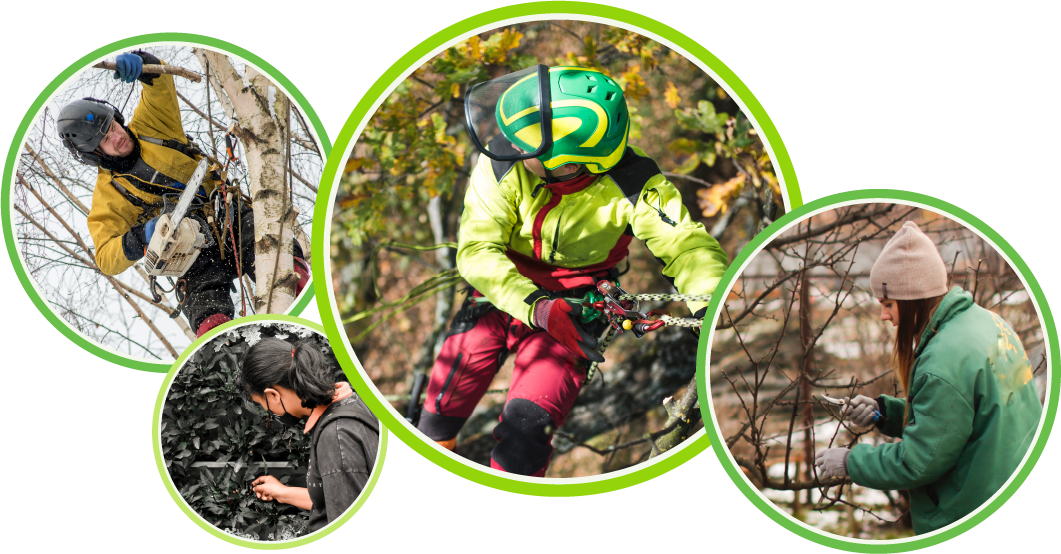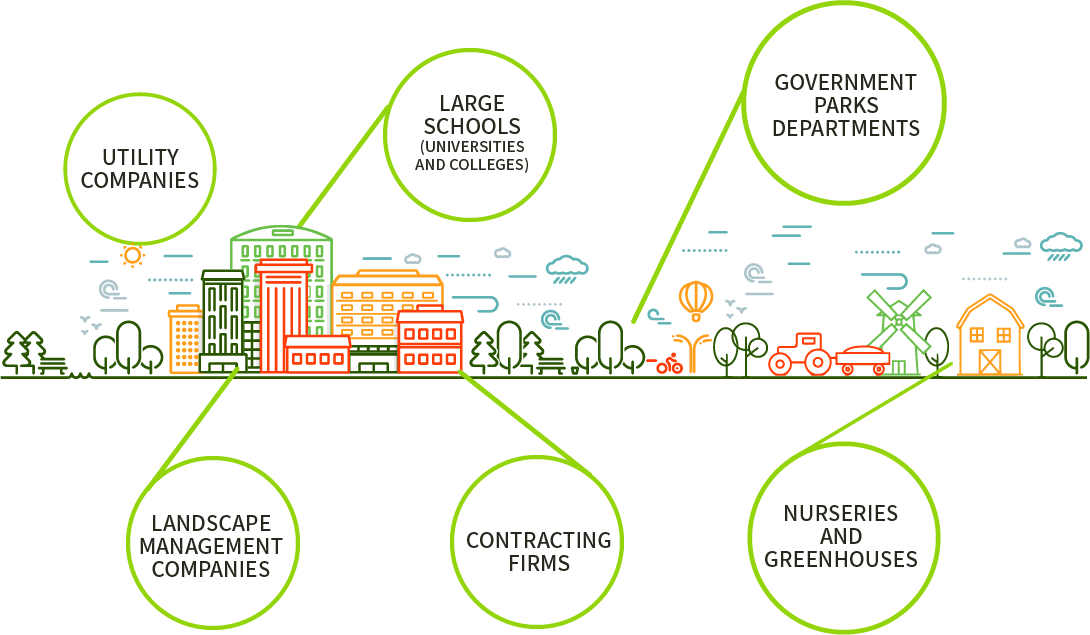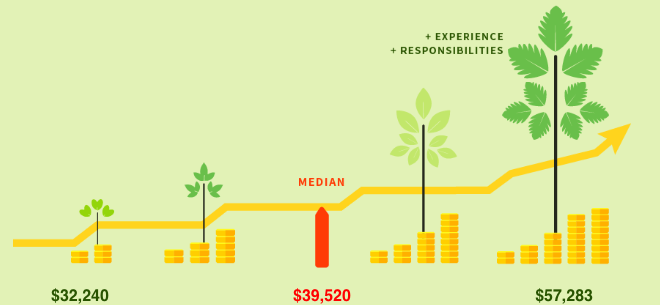
arborist

- Prune trees to maintain health and improve structure
- Treat split or broken branches by securing cables and braces
- Clear power lines in urban and forest settings
- Install lightning protection on trees
- Diagnose and treat problems
- Plant and fertilize trees
- Advise on tree care
- Remove trees, sometimes in tight spaces
- Undertake tree appraisals and provide reports
- Provide information to the public
- Supervise tree crews or contractors
- Inspect work to ensure high standards
- Conduct tree inventories
- Assess urban forest health
- Make recommendations on urban forest management tree protection plans
Advancement is based on the arborist’s ability to keep up to date with new developments and willingness to take on responsibility. At least two to three years of extensive, understanding of safe work practices and on-the-job training is generally needed before an arborist can lead a crew. Those with a lot of experience and extra training may advance to management positions. Some start their own companies or work as consultants.
Irrespective of where you want to work, future employment prospects are positive. In 2020, there were over 150 job postings for arborists across Ontario located anywhere from small, rural and remote communities to large urban cities.
HOW DO I BECOME AN ARBORIST IN ONTARIO?
Many Ontario colleges offer arboriculture programs, which will give you a solid foundation in arboriculture training that most employers will recognize. Landscape Ontario Horticultural Trades Association offers professional development training as does the Ontario Chapter of the International Society of Arboriculture.
There are many paths into arboriculture; some people will choose to begin their arboriculture career by being signed on as a groundworker, with no formal training, and learning on the job. Some employers are willing to hire new people on this basis, so long as they are hard working, with a good work ethic, eager to learn, and have a keen eye for safety, among other qualities.
HOW DO I BECOME A CERTIFIED ARBORIST?
Arboriculture is a non-regulated trade. An arborist should have enough knowledge and competency to pass either the ISA Certified Arborist Apprenticeship Program Exam or the Ministry of Colleges and Universities Qualified Arborist Exam. Both of these exams require a set amount of time in the field (3+ years) and an in-depth test. Acceptable experience includes the practical use of knowledge involved in pruning, fertilization, installation and establishment, diagnosis and treatment of tree problems, cabling and bracing, climbing, or other services that directly relate to arboriculture.
- Tree care companies
- Nurseries
- Landscape companies
- Municipalities
- State forestry agencies
- Utility companies
- Academic institutions
Documentation of work experience is required with the submission of your application. Letter(s) of reference from your current or previous employer(s) is acceptable. Applicable volunteer work may count towards eligibility if it is supervised, and documentation can be supplied. The eligibility requirement may also be satisfied with a two-year degree in arboriculture and two years of practical experience or a four-year degree in a related field and one year of practical experience.
© Copyright 2024 Green Careers Canada – Landscape Ontario Horticultural Association & Canada Nursery Landscape Association.
Privacy Statement | Legal Terms and Conditions





